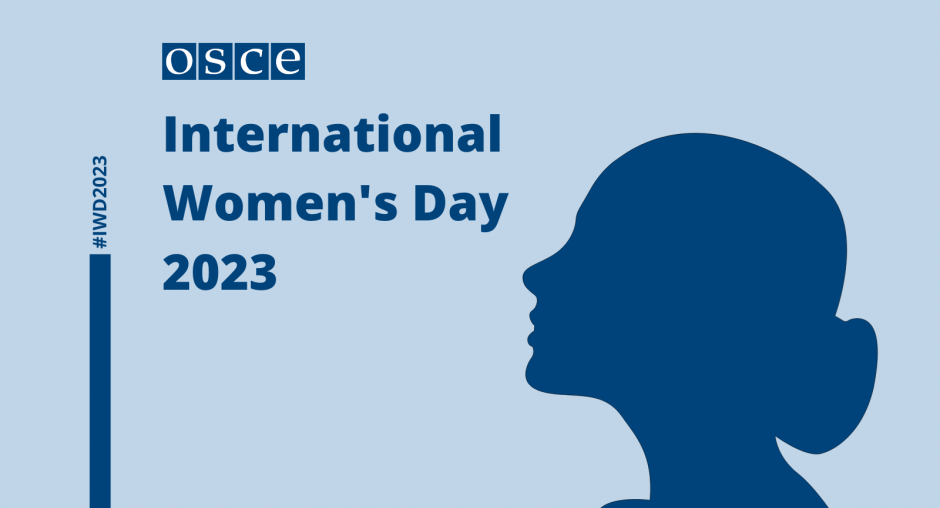Digital technology must empower women and address their needs, say OSCE leaders on International Women’s Day

SKOPJE/VIENNA/WARSAW, 8 March 2023 – Marking International Women’s Day, OSCE leaders urged further action to explore and embrace innovation and digital technology to eliminate all forms of gender inequality.
They stressed the critical role digital tools can play in empowering women and girls and making their voices heard. These tools can be particularly powerful in the context of crisis, as in the devastating earthquakes in Türkiye and Syria, and in conflict, including Russia’s unprovoked and unjustified war of aggression against Ukraine and the worrisome deterioration of women’s rights in Afghanistan.
“Digital technology provides an important means for all women and girls to access information and share views, and contributes to promoting their inclusion, participation and rights in society. Women and girls also need to be able to access the online space free from harassment and intimidation. As participating States of the OSCE, we need to bring together all stakeholders to facilitate safe access and empowerment,” said Chairman-in-Office, Minister of Foreign Affairs of North Macedonia Bujar Osmani.
“Whether we focus on the protection, prevention, or participation of women – empowerment is a key component. And digital tools make a real difference. They can provide access to life-saving information, health and other public services, and platforms for employment, training and education,” said Secretary General Helga Maria Schmid. “The digital world can either become an additional barrier for women and girls or an important tool for their empowerment. We are here to tilt the scales toward empowerment.”
While digitalisation can be a powerful tool to help fight gender inequality, more needs to be done to combat the gender digital divide and thus increase women’s access to a wide range of fundamental human rights.
“At a time where online communication and digital technologies dominate so many aspects of our lives, equal access is a precondition for women and girls to equally enjoy human rights,” said ODIHR Director Matteo Mecacci. “That is why our work to promote the design of technology that prevents discrimination and is both inclusive and gender-sensitive is so important.”
“Freedom of expression and access to information for women and girls are key for their empowerment to exercise their rights and to fully and equally participate in the private, public and political sphere. Last year’s Joint Declaration on Gender Justice and Freedom of Expression provides guidance for states, social media platforms, the media, and the general public on eliminating discrimination and prejudice, averting gender-specific restrictions and addressing gender-based violence, including in the digital realm,” the OSCE Representative on Freedom of the Media Teresa Ribeiro said. “We need to strengthen our efforts to leverage digital technologies and innovation for gender equality across the OSCE region.”
